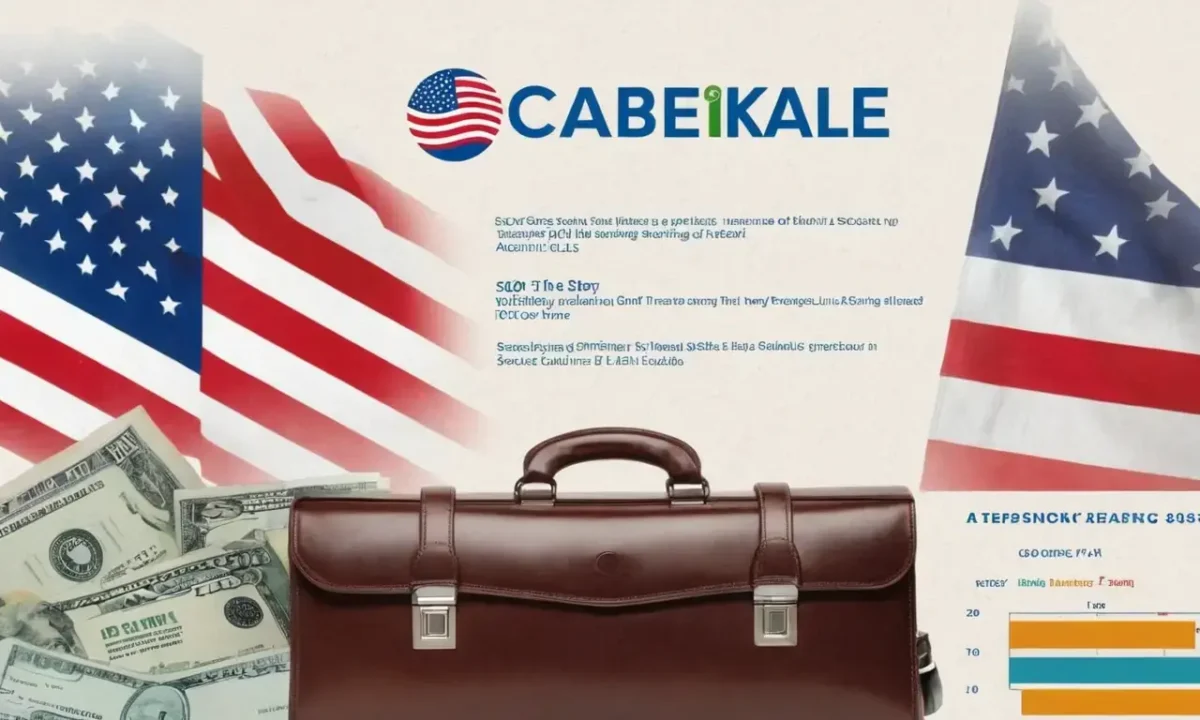
Sarbanes-Oxley Act: Corporate Transparency and Accountability

The Sarbanes-Oxley Act of 2002 was a landmark legislation aimed at restoring investor confidence in corporate disclosures and financial reporting following high-profile cases of corporate fraud. The act, signed into law by President George W. Bush on July 30, 2002, introduced significant changes to the way public companies operate, with a focus on transparency and accountability. This comprehensive legislation was enacted in response to scandals such as Enron and WorldCom, which highlighted the need for stricter regulations to prevent future corporate malfeasance.
The Sarbanes-Oxley Act's primary objective is to ensure that publicly traded companies maintain accurate financial records and adhere to strict standards of governance. By implementing these measures, the act aims to rebuild trust among investors and stakeholders in the integrity of corporate reporting. The legislation has had a profound impact on corporate culture, influencing not only US-based companies but also those listed on foreign exchanges.
- History of the Act
- Purpose of the Sarbanes-Oxley Act
- Key Provisions of the Act
- Impact on Corporate Governance
- Enhanced Financial Reporting Requirements
- Internal Controls and Auditing Standards
- CEO and CFO Certification
- Whistleblower Protection
- Enforcement Mechanisms
- Amendments to the Act
- Global Implications
- Conclusion
History of the Act
The Sarbanes-Oxley Act was born out of a series of high-profile corporate scandals that shook investor confidence in the early 2000s. Enron's collapse in 2001 and WorldCom's bankruptcy filing later that year exposed widespread accounting irregularities and mismanagement within these companies. These incidents led to calls for reform, with lawmakers seeking to strengthen corporate governance and financial reporting standards.
The act was named after its sponsors, Senator Paul Sarbanes (D-MD) and Representative Michael Oxley (R-OH), who championed the legislation through Congress. The bill underwent several revisions before being passed by both chambers of Congress in July 2002. President Bush signed the act into law on July 30, 2002, marking a significant shift towards greater corporate accountability.
Purpose of the Sarbanes-Oxley Act
The primary purpose of the Sarbanes-Oxley Act is to protect investors by ensuring that publicly traded companies maintain accurate and transparent financial records. The act achieves this through several key provisions aimed at enhancing corporate governance, internal controls, and financial reporting standards. By requiring CEOs and CFOs to personally certify the accuracy of their company's financial reports, the legislation holds top executives accountable for any discrepancies or misstatements.
Moreover, the Sarbanes-Oxley Act seeks to prevent future Enrons by mandating that companies implement robust internal control systems. This includes regular audits and assessments of these controls, which must be certified by both the CEO and CFO. The act's provisions are designed to foster a culture of transparency within corporations, where accountability is paramount.
Key Provisions of the Act
The Sarbanes-Oxley Act contains several key provisions that have significantly impacted corporate governance and financial reporting practices. One of the most notable provisions requires public companies to establish an audit committee composed entirely of independent directors. This committee is responsible for overseeing internal audits, ensuring that they are conducted in accordance with US GAAP and SOX standards.
Another critical provision mandates that CEOs and CFOs personally certify their company's financial reports. This certification process not only holds executives accountable but also serves as a deterrent against fraudulent activities. Companies must also disclose any material weaknesses in their internal controls, providing stakeholders with valuable information about the company's governance structure.
Impact on Corporate Governance

The Sarbanes-Oxley Act has had a profound impact on corporate governance practices worldwide. By introducing stricter standards for financial reporting and internal control systems, the act has raised the bar for companies seeking to maintain investor confidence. The legislation requires public companies to adopt a more robust approach to governance, emphasizing transparency and accountability.
One of the significant effects of the Sarbanes-Oxley Act is the increased focus on board composition. Companies are now required to have an independent audit committee, which oversees internal audits and ensures compliance with SOX standards. This shift towards independence has led to a more vigilant approach in corporate governance, where boards play a crucial role in monitoring company performance.
Enhanced Financial Reporting Requirements
The Sarbanes-Oxley Act places significant emphasis on enhanced financial reporting requirements for public companies. Companies must now submit quarterly and annual assessments of their internal auditing controls, which are verified by external auditors. This process not only ensures that companies maintain accurate records but also provides stakeholders with a clear understanding of the company's governance structure.
The act requires companies to disclose any material weaknesses in their internal control systems, providing investors with valuable information about potential risks and vulnerabilities within the organization. Furthermore, CEOs and CFOs must certify that their financial reports are true and complete, applying to both US and foreign companies with listed equity securities.
Internal Controls and Auditing Standards
The Sarbanes-Oxley Act places a strong emphasis on internal controls and auditing standards for public companies. Companies are required to establish an internal control system that is designed to prevent material misstatements in financial reports. This includes regular audits and assessments of these controls, which must be certified by both the CEO and CFO.
The act also introduces new auditing standards, requiring external auditors to verify the effectiveness of a company's internal control systems. This process involves testing and evaluating the design and operation of these controls, ensuring that they are operating effectively. Companies must disclose any material weaknesses in their internal control systems, providing stakeholders with critical information about potential risks.
CEO and CFO Certification
One of the most significant provisions of the Sarbanes-Oxley Act is the requirement for CEOs and CFOs to personally certify their company's financial reports. This certification process not only holds executives accountable but also serves as a deterrent against fraudulent activities. Companies must ensure that their CEOs and CFOs are aware of the importance of this certification, understanding its implications on corporate governance.
The act requires CEOs and CFOs to sign off on quarterly and annual certifications, affirming that they have reviewed the company's financial reports and internal control systems. This process is designed to promote transparency and accountability within corporations, ensuring that executives take responsibility for their actions.
Whistleblower Protection
The Sarbanes-Oxley Act includes provisions aimed at protecting whistleblowers who report corporate wrongdoing or misconduct. Companies are now required to establish procedures for receiving and investigating whistleblower complaints, providing a safe and confidential environment for employees to speak up about potential issues.
This provision is crucial in fostering an open culture within corporations, where employees feel empowered to report concerns without fear of retaliation. By safeguarding whistleblowers, the act encourages transparency and accountability, promoting a healthier corporate culture that values integrity over profits.
Enforcement Mechanisms
The Sarbanes-Oxley Act establishes several enforcement mechanisms to ensure compliance with its provisions. The Securities and Exchange Commission (SEC) is responsible for overseeing the implementation of the act, conducting regular audits and investigations into companies suspected of non-compliance.
Companies found guilty of violating SOX standards may face severe penalties, including fines and imprisonment for executives involved in fraudulent activities. The act also empowers the SEC to impose civil penalties on companies that fail to comply with its provisions, further emphasizing the importance of adherence to these regulations.
Amendments to the Act
Over time, the Sarbanes-Oxley Act has undergone several amendments aimed at refining its provisions and addressing emerging issues in corporate governance. One notable amendment introduced the Public Company Accounting Oversight Board (PCAOB), which oversees the auditing profession and ensures that auditors comply with US GAAP standards.
Another significant amendment expanded whistleblower protections, providing greater safeguards for employees who report corporate wrongdoing. These amendments demonstrate the ongoing commitment to strengthening corporate governance and financial reporting practices, ensuring that companies continue to operate in a transparent and accountable manner.
Global Implications
The Sarbanes-Oxley Act has had far-reaching implications globally, influencing corporate governance standards in countries around the world. Many jurisdictions have adopted similar legislation or incorporated elements of SOX into their existing regulatory frameworks.
For instance, the European Union's Transparency Directive requires listed companies to disclose information about their internal control systems and risk management processes. This trend towards greater transparency reflects a global recognition of the importance of corporate governance in maintaining investor confidence and promoting economic stability.
Conclusion
The Sarbanes-Oxley Act has been instrumental in shaping corporate governance practices worldwide, emphasizing the need for transparency, accountability, and robust financial reporting standards. By introducing stricter requirements for internal control systems and auditing procedures, the act has raised the bar for companies seeking to maintain investor confidence.
As the business landscape continues to evolve, it is essential that corporations adapt to these changing regulations, prioritizing governance and compliance in their operations. The impact of SOX will be felt for years to come, shaping the future of corporate governance and financial reporting practices globally.
Leave a Reply





Related Links